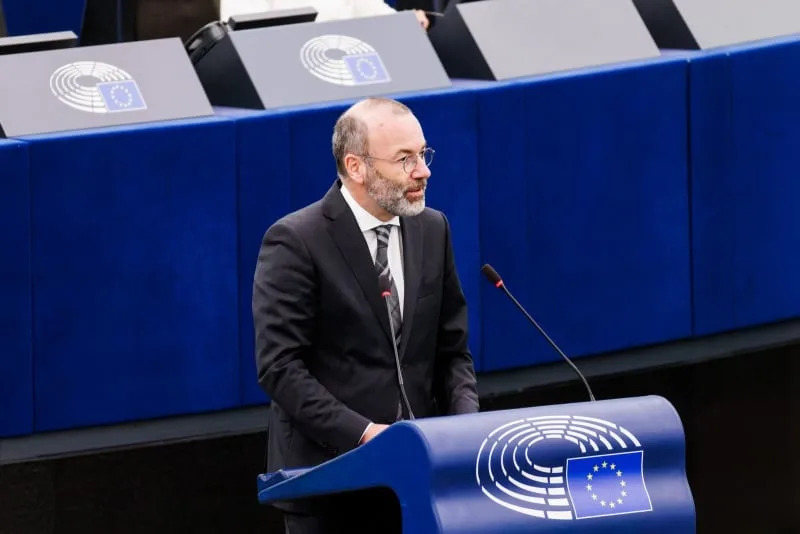World
EU Lawmaker Advocates for Syrian Refugees to Return Home

The leader of the conservative European People’s Party (EPP) in the European Parliament, Manfred Weber, has stated that Syrian refugees should return to their home country, although he allowed for certain exceptions. In comments published by the mass-circulation tabloid Bild on Sunday, Weber emphasized that those capable of aiding in the reconstruction of Syria should leave Germany and other European nations.
Weber articulated a clear legal framework regarding refugee assistance, stating, “We provide help in emergencies, but when the war is over, you have to return to your home country.” While he endorsed the principle of repatriation, he cautioned against imposing strict deadlines. “If deportations in the first month are not possible because parts of Syria are still completely destroyed, then it might work the following month,” he explained. “But the principle must ultimately be implemented.”
Exceptions for Integrated Refugees
Weber also highlighted the contributions of many Syrians who have successfully integrated into the German labor market. He questioned the wisdom of sending these individuals back to Syria, noting, “There are many Syrians in Germany who are making an important contribution here.” This sentiment reflects a broader recognition of the role that migrants play, particularly in essential sectors like healthcare.
The EPP leader’s remarks come at a time of internal strife within the conservative bloc regarding the issue of returns to Syria. Notably, Foreign Minister Johann Wadephul stirred controversy last week after visiting a devastated suburb of Damascus. He expressed skepticism about the feasibility of large-scale voluntary returns, stating that living conditions in the war-torn area make it “barely possible” to live there with dignity.
Weber’s statements reflect ongoing debates in Europe about the future of Syrian refugees, many of whom have fled a decade-long civil war. The discussion has become increasingly relevant as the situation in Syria evolves, with some areas experiencing reconstruction while others remain perilously damaged.
As these conversations progress within political circles, the wider implications for refugee policy in Europe continue to unfold, raising questions about the balance between humanitarian assistance and the responsibilities of host countries.
-

 Science3 weeks ago
Science3 weeks agoInterstellar Object 3I/ATLAS Emits Unique Metal Alloy, Says Scientist
-

 Science3 weeks ago
Science3 weeks agoResearchers Achieve Fastest Genome Sequencing in Under Four Hours
-

 Politics3 weeks ago
Politics3 weeks agoAfghan Refugee Detained by ICE After Asylum Hearing in New York
-

 Business3 weeks ago
Business3 weeks agoIconic Sand Dollar Social Club Listed for $3 Million in Folly Beach
-

 Health3 weeks ago
Health3 weeks agoPeptilogics Secures $78 Million to Combat Prosthetic Joint Infections
-

 Lifestyle3 weeks ago
Lifestyle3 weeks agoJump for Good: San Clemente Pier Fundraiser Allows Legal Leaps
-

 Business3 weeks ago
Business3 weeks agoMcEwen Inc. Secures Tartan Lake Gold Mine Through Acquisition
-

 Science3 weeks ago
Science3 weeks agoMars Observed: Detailed Imaging Reveals Dust Avalanche Dynamics
-

 World3 weeks ago
World3 weeks agoUS Passport Ranks Drop Out of Top 10 for First Time Ever
-

 Health3 weeks ago
Health3 weeks agoResearcher Uncovers Zika Virus Pathway to Placenta Using Nanotubes
-

 Entertainment3 weeks ago
Entertainment3 weeks agoJennifer Lopez Addresses A-Rod Split in Candid Interview
-

 Business3 weeks ago
Business3 weeks agoSan Jose High-Rise Faces Foreclosure Over $182.5 Million Loan









